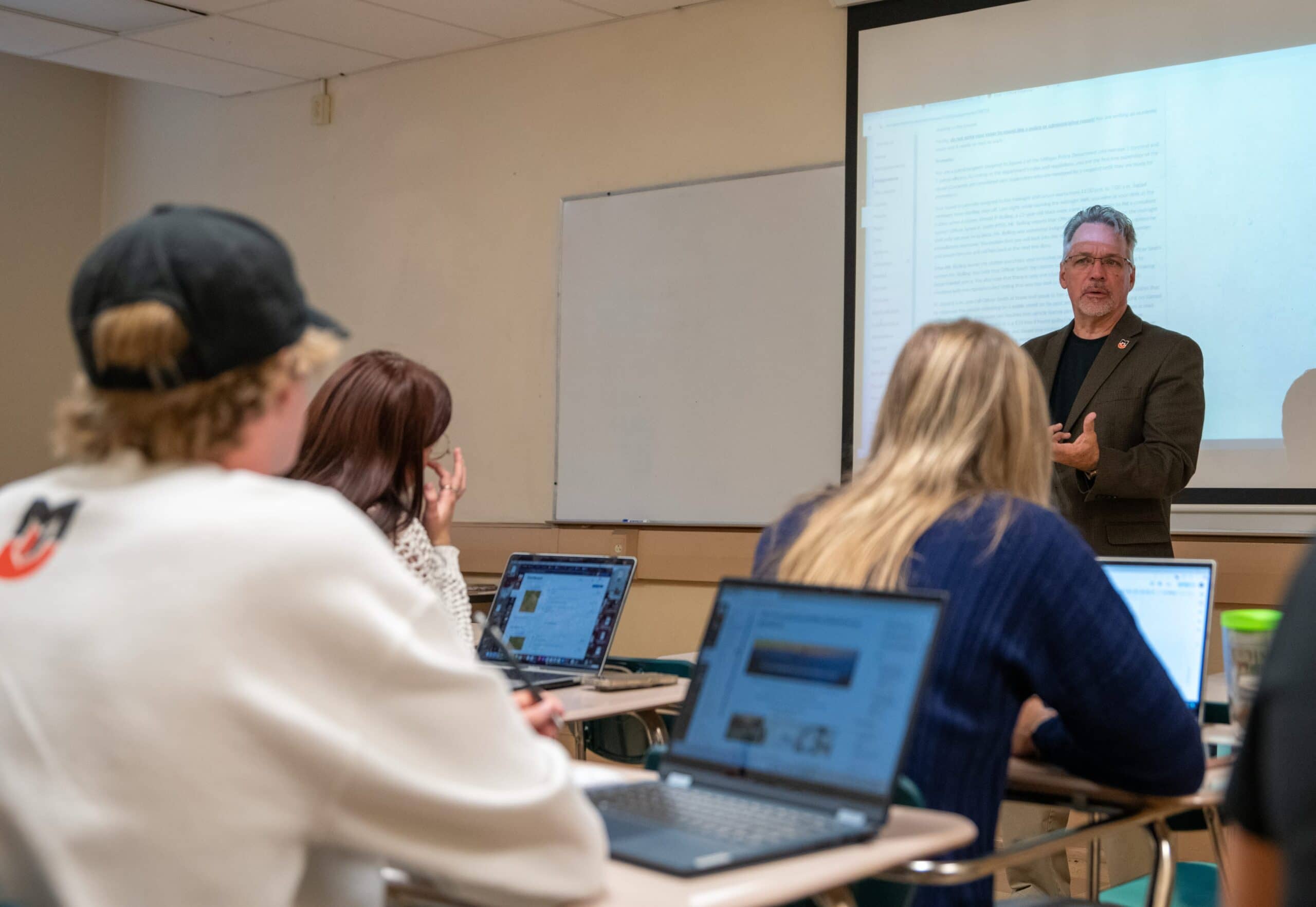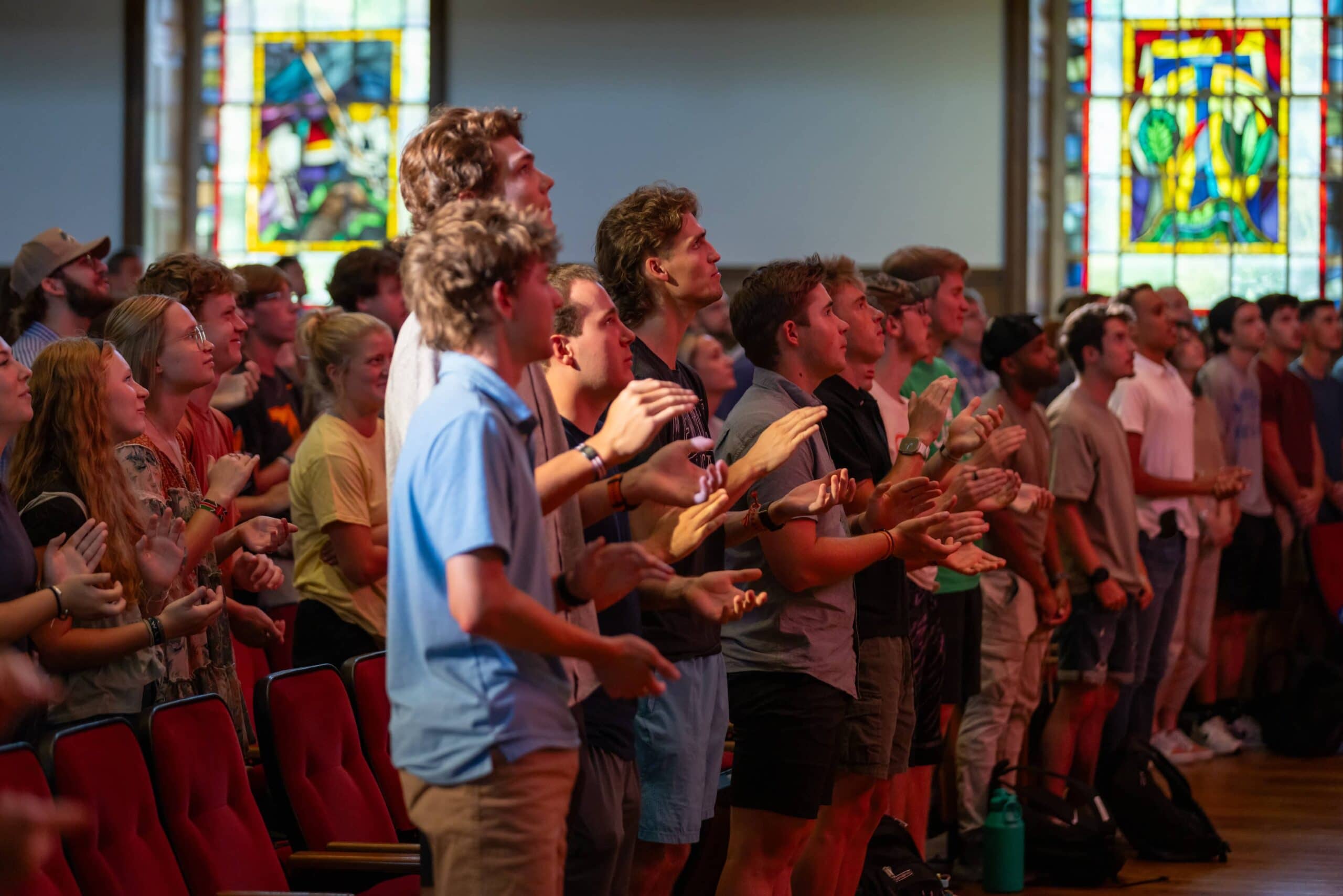Why Engineering at Milligan?
What Milligan’s engineering program can offer you that you won’t find just anywhere:
- Traditional engineering curriculum with hands-on focus (4 years, all on our campus) combining both theory and practice
- Liberal arts foundation helps you understand and communicate with the people and societies you’ll serve
- Christian worldview encourages you to serve others and impact the world
- Faculty credentials: West Point, The United Nations, NASA, U.S. Department of Energy, Fulbright Scholar
- Faculty mentoring goes beyond the classroom
- Capstone design project experience where you’ll apply knowledge and theory to real-world equipment and be skill-ready when you hit the workforce
- Strong national reputation that puts Milligan engineering grads on par with programs at larger schools
- Industry leaders ready to hire Milligan engineering grads
WILLIAM B. GREENE JR., SCHOOL OF BUSINESS & TECHNOLOGY
BACHELOR OF SCIENCE (BS) ELECTRICAL ENGINEERING, BACHELOR OF SCIENCE (BS) MECHANICAL ENGINEERING
Get Ready to Change Lives
Change Lives with Milligan’s Engineering Program—where cutting-edge innovation meets a Christ-centered mission. Gain the skills, knowledge, and industry support to make a real impact.
Curriculum
Electrical Engineering
Electrical Engineering (EE) focuses on all things electrical/electronic, including electronic devices, systems, and energy. This includes digital-based communication and control systems; generation, transmission, and distribution of electric power; electronic devices and electrical circuits for producing, detecting, and controlling electrical signals; and robotics and control systems. For more information, visit the Institute of Electrical & Electronics Engineers (IEEE).
Mechanical Engineering
Mechanical Engineering (ME) focuses on machines, structures, devices, mechanical systems, and energy conversion systems. It is the broadest of all engineering disciplines, and encompasses areas such as energy, fluid mechanics, thermodynamics, mechanical design, manufacturing processes, robotics, and systems modeling. Mechanical engineers are employed in nearly every kind of industry. For more information, visit the American Society of Mechanical Engineers (ASME).
Co-Op Program
Mission Statement
- Provide high-quality engineering education to prepare students to be servant leaders that serve industry, community, and public through an integration of Christian faith, technical skills, social responsibility, and a global vision.
- Be a major talent-base of engineers that serves the tri-cities region and beyond.
Engineering and the Liberal Arts
Engineering is more than applying math and science to solve problems. Engineering involves innovation and analysis and integrates many disciplines in order to develop successful technological products or systems. Milligan engineering students will receive a rigorous preparation in science and mathematics in the context of the Milligan liberal arts curriculum. This foundation enriches engineering and technology components with an understanding of culture, arts, and the humanities, and encourages students to see how all subjects—and technological solutions—are interconnected.
As William A. Wulf, president of the National Academy of Engineers, and George M. C. Fisher, retired CEO of Eastman Kodak Company, explain in Issues in Science and Technology: “Today’s student-engineers not only need to acquire the skills of their predecessors but many more, and in broader areas. As the world becomes more complex, engineers must appreciate more than ever the human dimensions of technology, have a grasp of the panoply of global issues, be sensitive to cultural diversity, and know how to communicate effectively. In short, they must be far more versatile than the traditional stereotype of the asocial geek.”
“As populations grow, migrate, and urbanize, and as challenges of climate change and human and natural threats to society increase, we will need to achieve security and resilience through the engineering of very large systems. Such systems cannot be wisely envisioned, designed, or deployed without an understanding of society, culture, politics, economics, and communications—in other words, the very stuff of the liberal arts and also of the social sciences.”
– Charles M. Vest, president of the National Academy of Engineering and president emeritus of MIT
Milligan Engineering is ABET Accredited
Milligan University’s bachelor’s degree programs in electrical engineering and mechanical engineering are accredited by the Engineering Accreditation Commission of ABET, the global accreditor of college and university programs in applied and natural science, computing, engineering, and engineering technology.
Milligan University is accredited by the Southern Association of Colleges and Schools Commission on Colleges to award baccalaureate, master’s, education specialist, and doctoral degrees. Contact the Commission on Colleges at 1866 Southern Lane, Decatur, Georgia 30033-4097 or call 404-679-4500 for questions about the accreditation of Milligan University.

Admission
There is no separate application for the engineering program. Entering first-year students should apply to Milligan University and declare an electrical or mechanical engineering major. (Transfer students interested in entering the engineering program will need to have their transcripts evaluated and a plan sheet developed to determine if any additional coursework or time is necessary to complete the program and degree.)
Engineering coursework involves a demanding undergraduate curriculum. Applying students should exemplify exceptional study habits, mental preparedness, and dedication to purpose. Students preparing to study engineering should plan to take as many math and science classes as possible. Entering engineering students will be subject to the following recommendations:
- 3.5 high school GPA (3.0 cumulative for transfers; see note above under “Admission”)
- Composite ACT score of at least a 25 (1200 new SAT; 1130 old SAT) with at least a 25 in the math category ( 620 new SAT; 600 old SAT)
- A minimum of 4 credits of high school mathematics
- Algebra 1
- Algebra 2
- Geometry
- Pre-Calculus or Trigonometry
- A minimum of 3 credits of high school physical science from the following
- Chemistry 1
- Chemistry 2
- Physics 1
- Physics 2
These are recommendations, not requirements. Students who have completed this recommended level of high school study will be better prepared for the engineering curriculum. Students will be more prepared if additional science and math courses are taken and if the classes are Advanced Placement or College Preparatory level. Some experience with programming language will be an additional benefit. Deficiencies in any of these categories can be overcome; however, the student may be at an academic disadvantage.
Engineering is a demanding discipline. It requires dedicated focus, significant effort, and good management of your resources. National statistics show that at the undergraduate level about half of the engineering graduates in the United States graduate in five (5) years, while the other half graduate in four (4) years. There are many factors that come into play in making a 4-year or 5-year decision—things like financial situation, time availability, playing collegiate sports, and the pursuit of multiple degrees.
We have a self-assessment questionnaire that can help you consider these factors. We strongly recommend completing this self assessment with your family and/or mentors, as these decisions will influence your course load, financial situation, and time required to complete your degree. We would like to provide the support that meets your needs. Please contact Milligan Engineering to receive the self-assessment, or if you have any questions or would like to have further discussions.
Once enrolled, students will be required to meet certain progression gateways and benchmarks in order to progress through the Milligan Engineering Program. Satisfactory progress (a C- or better) must be attained in all of the math-science-engineering courses at the First-Year, Second-Year, and Third-Year Gateways before the student can enroll in the next year’s courses.
Each student will be advised by an engineering professor prior to submitting their course requests each semester. This advising time will serve to ensure the student is properly prepared for the next semester and is following the correct path through the program.
Contact the Admissions Office for more information.





